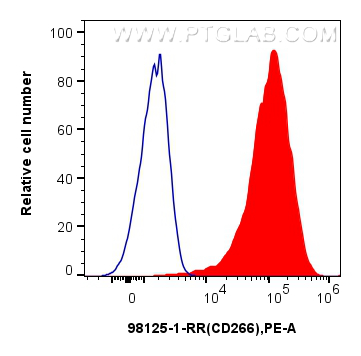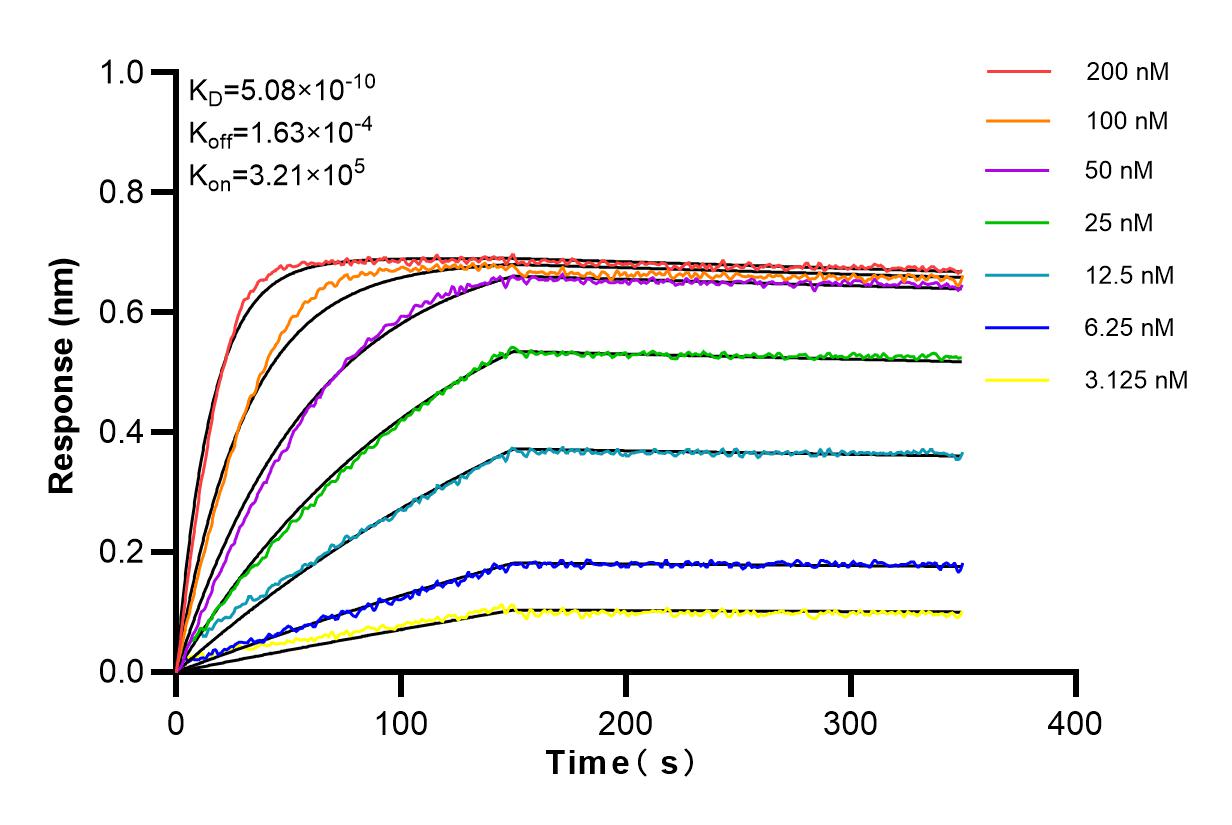验证数据展示
经过测试的应用
| Positive FC detected in | HT-1080 cells |
推荐稀释比
| 应用 | 推荐稀释比 |
|---|---|
| This reagent has been tested for flow cytometric analysis. It is recommended that this reagent should be titrated in each testing system to obtain optimal results. | |
| Sample-dependent, Check data in validation data gallery. | |
产品信息
98125-1-RR targets TWEAKR/CD266 in FC applications and shows reactivity with human samples.
| 经测试应用 | FC Application Description |
| 经测试反应性 | human |
| 免疫原 | TWEAKR/CD266 fusion protein Ag13823 种属同源性预测 |
| 宿主/亚型 | Rabbit / IgG |
| 抗体类别 | Recombinant |
| 产品类型 | Antibody |
| 全称 | tumor necrosis factor receptor superfamily, member 12A |
| 别名 | CD266, TNFRSF12A, TweakR, FGF inducible 14, DR3LG |
| 计算分子量 | 129 aa, 14 kDa |
| GenBank蛋白编号 | BC002718 |
| 基因名称 | TWEAKR |
| Gene ID (NCBI) | 51330 |
| RRID | AB_3672272 |
| 偶联类型 | Unconjugated |
| 形式 | Liquid |
| 纯化方式 | Protein A purfication |
| UNIPROT ID | Q9NP84 |
| 储存缓冲液 | PBS with 0.09% sodium azide , pH 7.3 |
| 储存条件 | Store at 2 - 8°C. Stable for one year after shipment. |
背景介绍
TWEAKR (also known as CD266, FN14, TNFRSF12A) is a member of the TNF receptor superfamily which is activated by its ligand, the cytokine TWEAK (TNFSF12). TWEAKR is the smallest member of the TNFR superfamily. TweakR was first described as an FGF-inducible gene that played a role in fibroblast adhesion and migration. Subsequently, the induction of TweakR expression by other growth factors and/or upon tissue injury was observed in multiple cell types, including hepatocytes, endothelial cells, adipocytes, and cardiomyocytes. (PMID: 23073510, PMID: 24409185)
实验方案
| Product Specific Protocols | |
|---|---|
| FC protocol for TWEAKR/CD266 antibody 98125-1-RR | Download protocol |
| Standard Protocols | |
|---|---|
| Click here to view our Standard Protocols |

